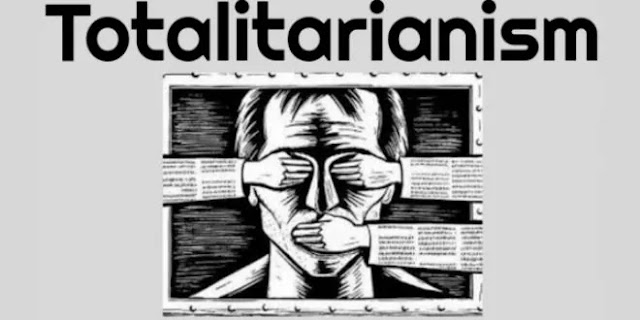Totalitarianism is a political system where the state wields absolute control over all aspects of public and private life, aiming for complete societal transformation according to a specific ideology.
Here's a breakdown of its key features:
1. Total Control by the State:
The government regulates and dictates virtually every facet of society, from the economy and education to culture, religion, and even personal relationships.
Individual liberties and freedoms are suppressed, with the state prioritizing its own goals and objectives above all else.
2. Single-Party Rule & Charismatic Leader:
Power is typically concentrated in the hands of a single political party and a powerful leader (often a dictator) who embodies the state's ideology.
Opposition parties and dissent are not tolerated, and the leader's authority is absolute and unquestioned.
3. Ideology & Propaganda:
Totalitarian regimes promote a specific ideology that dictates all aspects of life and justifies the state's control.
Propaganda is extensively used to indoctrinate citizens, shape public opinion, and maintain the regime's power.
4. Suppression of Dissent & Use of Terror:
Dissenting voices and any form of opposition are brutally suppressed through censorship, surveillance, and the use of secret police or military force.
A climate of fear and intimidation is often cultivated to deter any challenges to the regime's authority.
5. Examples:
Historically, notable examples of totalitarian regimes include Nazi Germany under Adolf Hitler, the Soviet Union under Joseph Stalin, and North Korea under the Kim dynasty.
In essence, totalitarianism represents an extreme form of government where the state seeks to dominate and control every aspect of its citizens' lives, leaving little room for individual freedom or autonomy.















